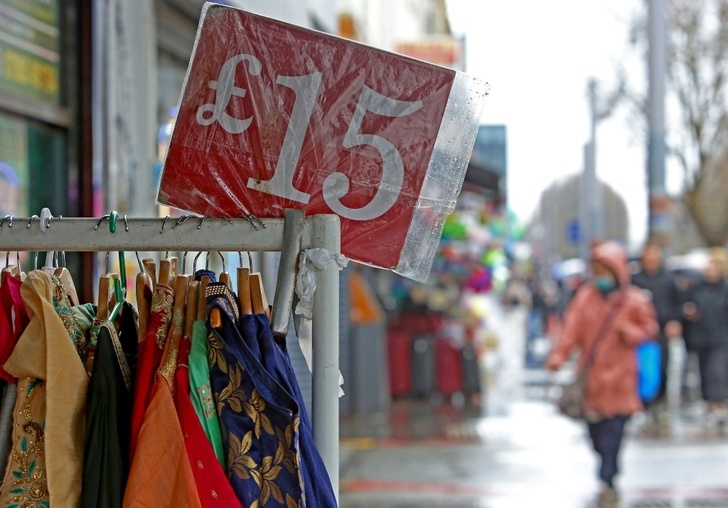UK inflation slowed slightly last month but held stubbornly above 10 percent, official data showed Wednesday, further fuelling a cost-of-living crisis despite an aggressive series of interest-rate hikes.
The Consumer Prices Index (CPI) rose by a stronger-than-expected 10.1 percent in March, down from 10.4 percent in February, the Office for National Statistics (ONS) said in a statement.
Inflation nevertheless held in double figures on soaring food and housing costs including electricity and gas bills.
Market expectations had been for a drop below 10 percent.
"Inflation eased slightly in March, but remains at a high level," said ONS chief economist Grant Fitzner.
"The main drivers of the decline were motor fuel prices and heating oil costs, both of which fell after sharp rises at the same time last year.
"Clothing, furniture and household goods prices increased, but more slowly than a year ago."
However, this was "partially offset by the cost of food, which is still climbing steeply", Fitzner added, noting bread and cereal inflation hit a record high.
The UK's Conservative government, headed by Prime Minister Rishi Sunak, had last month unveiled a budget aimed at tackling a cost-of-living crisis -- which has sparked strikes as many wages fail to keep pace.
Inflation had zoomed to a 41-year peak above 11 percent last October on rocketing energy costs after key gas producer Russia invaded Ukraine.
However, Britain has forecast it will tumble to 2.9 percent by the end of this year.
"These figures reaffirm exactly why we must continue with our efforts to drive down inflation so we can ease pressure on families and businesses," said finance minister Jeremy Hunt in response to Wednesday's data.
"We are on track to do this... and we'll continue supporting people with cost-of-living support."
Hunt had in March extended a subsidy on energy bills for a further three months, after the invasion of Ukraine by oil and gas producer Russia sent them surging -- and fuelled rampant global inflation.
The Bank of England has ramped up interest rates 11 times in a row since late 2021 in a bid to bring rocketing consumer prices under control.
The BoE's key rate currently stands at 4.25 percent, the highest level since late 2008.
Yet inflation remains at more than five times the BoE's official target of two percent.
The British central bank's next decision is due in May.
"The (inflation) drop is too modest for the (BoE) to stop raising rates; we now look for a final 25 basis-point hike," commented Pantheon Macroeconomics analyst Samuel Tombs.
rfj/lth
© Agence France-Presse
Your content is great. However, if any of the content contained herein violates any rights of yours, including those of copyright, please contact us immediately by e-mail at media[@]kissrpr.com.
Source: Story.KISSPR.com

